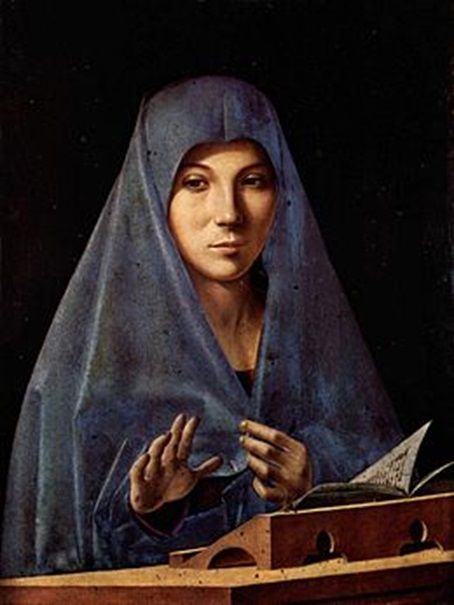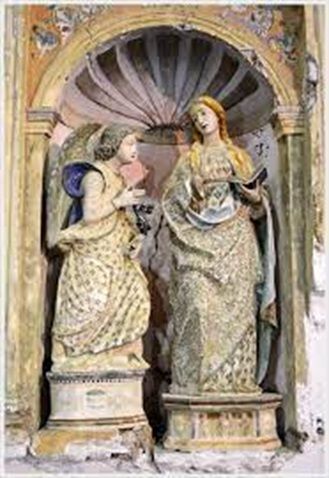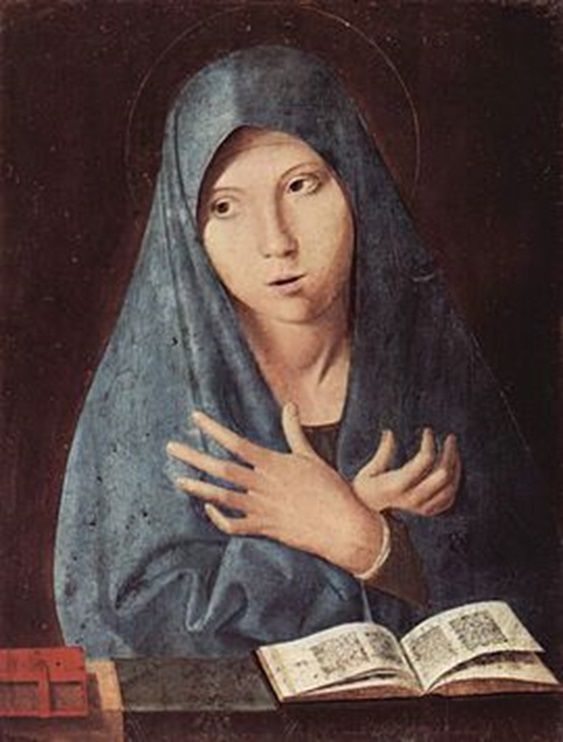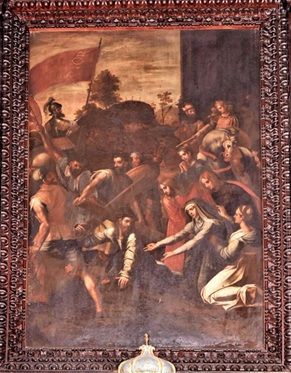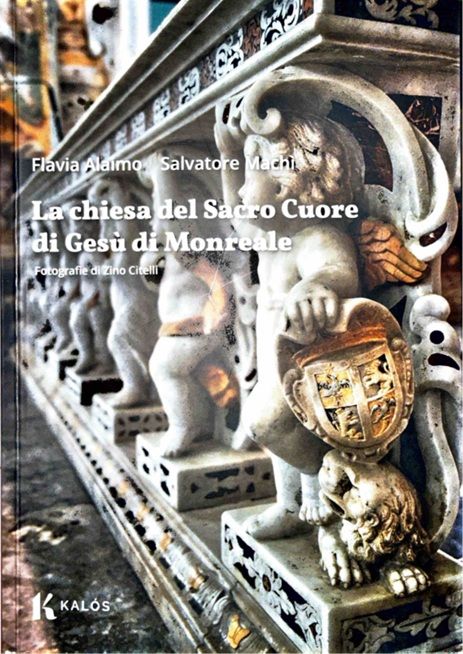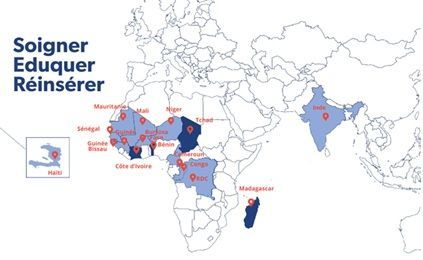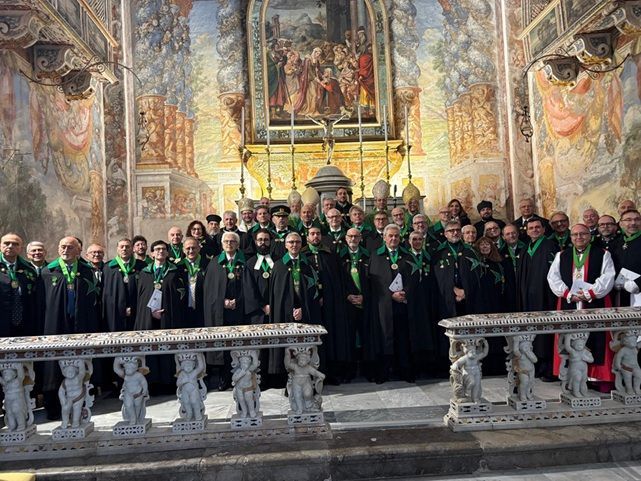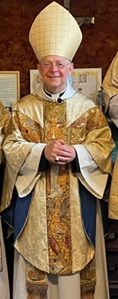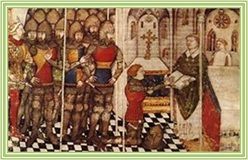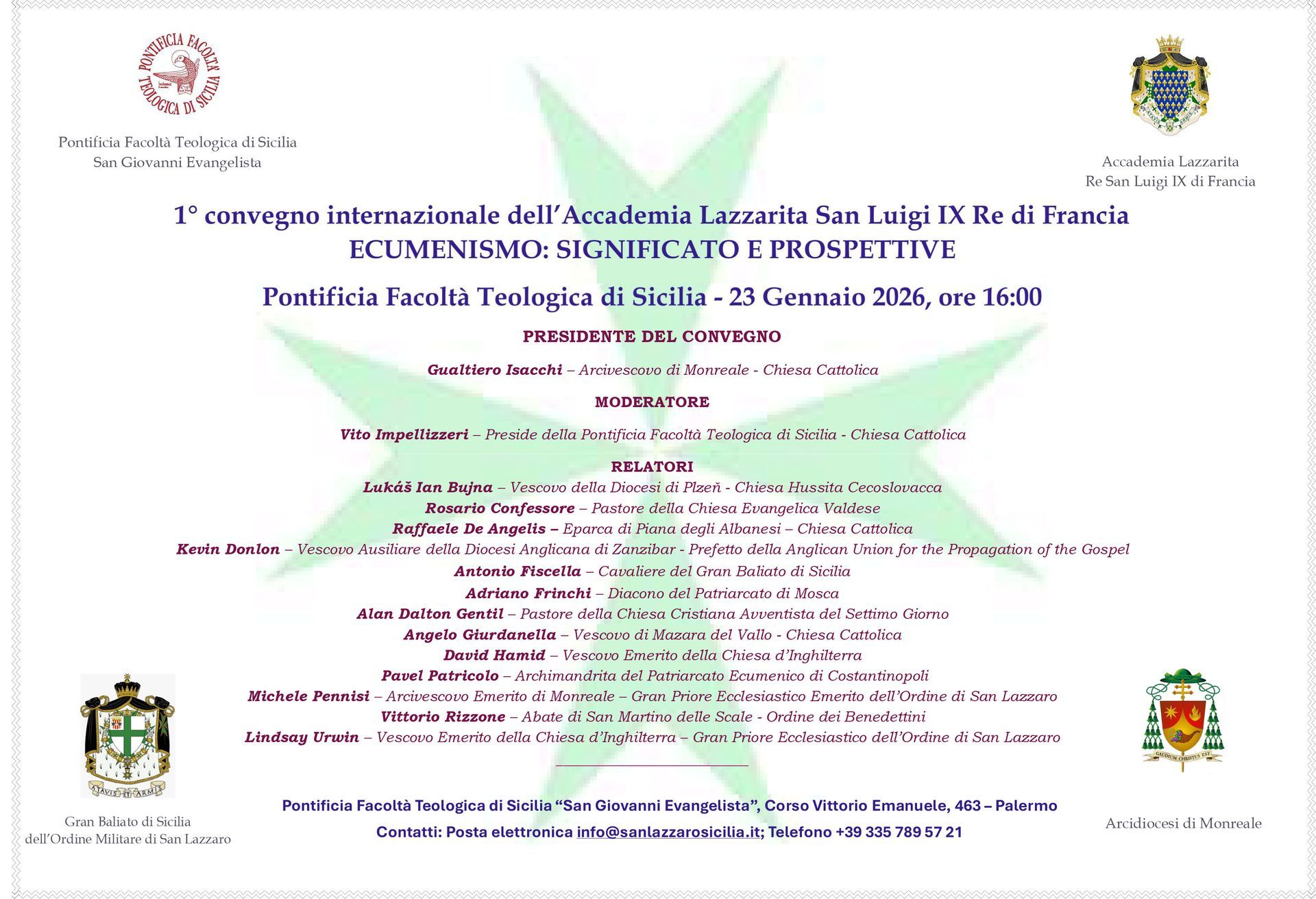MESSAGGIO DI AVVENTO 2024 PER I MEMBRI DELL’ORDINE DI SAN LAZZARO DEL VESCOVO OTTAR MIKAEL MYRSETH, ECLJ, VESCOVO DIOCESANO DELLA CHIESA NORDICA CATTOLICA IN SCANDINAVIA E VESCOVO DELEGATO DELL’UNIONE
MESSAGGIO DI AVVENTO 2024 PER I MEMBRI DELL’ORDINE DI SAN LAZZARO DEL VESCOVO OTTAR MIKAEL MYRSETH, ECLJ, VESCOVO DIOCESANO DELLA CHIESA NORDICA CATTOLICA IN SCANDINAVIA E VESCOVO DELEGATO DELL’UNIONE DI SCRANTON PER GERMANIA, UNGHERIA E SLOVACCHIA
(L’Annunciata – Antonello da Messina - olio su tavola 1475 – Palazzo Abatellis - Palermo)
Carissimi Confratelli e Consorelle,
L'“Adventus Domini” riguarda il ritorno di Gesù Cristo, la parousia del Signore, la sua apparizione.
Egli è venuto e ha assunto la forma di servo, si è fatto schiavo, obbediente fino alla morte, la morte di croce.
Verrà di nuovo. Verrà allora nella sua gloria, nella sua potenza, nella sua onnipotenza, nel suo dominio regale. Allora tutte le ginocchia si inchineranno a lui: in cielo tutti gli angeli, sulla terra tutti gli uomini, negli abissi tutti i demoni e le potenze. E tutti capiranno: Gesù Cristo è il Signore, a gloria di Dio Padre. Che giorno!
Quel giorno verrà. È più sicuro di qualsiasi altra cosa. Perché il Messia tornerà in mezzo alla vita, in mezzo al tran tran quotidiano. Due uomini possono essere fuori nel campo e uno viene preso, mentre l'altro rimane; due donne possono macinare il grano e una viene presa, mentre l'altra sta indietro. Siate dunque consapevoli! Così Gesù descrive gli ultimi giorni del mondo, “i giorni del Figlio dell'uomo”.
Gesù si definisce il Figlio dell'uomo, un antico titolo ebraico per la figura celeste che appare nei tempi finali. È un titolo messianico, che sta proprio a significare la sua divinità, come si legge nel profeta Daniele: Poi vidi nelle mie visioni notturne: Ecco, con le nubi del cielo veniva uno simile a un figlio d'uomo. Andò dall'Antico dei giorni e fu condotto davanti a lui. Ricevette il dominio, l'onore e il regno. ... Il suo regno è un regno eterno, non passerà; il suo regno non perirà mai (Dan 7,13ss).
Temo che i cristiani, non da ultimo nei paesi cristiani consolidati e antichi dell'Occidente, abbiano un atteggiamento un po' sudato e imbarazzato nei confronti di questo, del messaggio della venuta di Cristo nella gloria, del fatto che questo mondo, questo secolo, finirà e il regno di Dio irromperà. Forse perché siamo diventati così strettamente legati a questo mondo?
(L’Annunciazione – Antonello e Giovannello da Messina – 1507-1533 – Chiesa della Annunciazione o Batia – Turturici – Palermo)
La vecchia teologia liberale ha tolto tutto ciò che di divino c'era in Gesù. Tutto ciò che rimaneva era qualcosa che assomigliava più a un umanista religioso ben vestito. Più tardi gli studiosi del Nuovo Testamento scoprirono che Gesù apparve ai suoi tempi come un profeta apocalittico, un profeta della fine. Predicava un mondo nuovo e raccoglieva un popolo di credenti e seguaci.
Questa era la fede che dava ai martiri il coraggio di testimoniarlo fino alla morte e ai confessori il coraggio di confessare.
È questa fede che risuona in tutta la liturgia eucaristica: La tua morte proclamiamo Signore e la tua risurrezione lodiamo, finché tu venga!
È questa fede che spinge alcuni a dare la propria vita come segno del regno in cui “non ci si sposa e non si dà in matrimonio, non si compra e non si vende”. Perciò vendono tutto ciò che possiedono e lo danno ai poveri. Che si tratti di celibato o di povertà evangelica, sarà un segno di un mondo diverso, su una scala diversa.
Molti obietteranno che l'attesa del Regno elimina il nostro impegno e la nostra cura per questo mondo e per la vita nella società. Tuttavia, è vero il contrario. Colui che può cambiare il mondo è colui che è libero, che non è bloccato fino alle orecchie. Per cambiare il mondo occorre un punto fermo, un punto fermo al di fuori di tutto ciò che va e viene, nasce e passa.
È il momento di liberare la nostra visione. Tutto ciò con cui lottiamo va a posto quando vediamo che stiamo per incontrare il nostro Dio! Preparati, Israele, dice il profeta Amos, preparati a incontrare il tuo Dio (4,12). Quando te ne rendi conto, ci sono molte cose di cui puoi fare a meno, molte cose che puoi sopportare, molte cose che devi risolvere. Non più tardi, ma ora. Il cristianesimo non è uno stile di vita nel mondo, la chiesa non è un club. Crediamo in Colui che porterà nuovi cieli e una nuova terra. Già ora incontra gli uomini, oggi come quando le parole del Vangelo suonarono per la prima volta. Questa è una parola predicata in fretta, per essere accolta in fretta. Proprio come Israele doveva consumare il pasto pasquale in fretta, con i lombi cinti. Quando Dio agisce e chiama, dovete sapere cosa volete, dovete aver già deciso ed essere pronti.
Egli dice: “Vengo presto” e la Chiesa risponde come sempre: Maran atha! Vieni, Signore, Gesù! Molti non ti aspettano. Tutto continua come prima. Ma noi sappiamo che verrai, che apparirai; ti aspettiamo! Vieni, sì vieni, Signore Gesù!
+ Ottar Mikael Myrseth, ECLJ
Vescovo Ordinario della Chiesa nordica cattolica in Scandinavia
ADVENT MESSAGE 2024 FOR THE MEMBERS OF THE ORDER OF SAINT LAZARUS BY BISHOP OTTAR MIKAEL MYRSETH, ECLJ, DIOCESAN BISHOP OF THE NORDIC CATHOLIC CHURCH IN SCANDINAVIA AND BISHOP DELEGATE OF THE SCRANTON UNION FOR GERMANY, HUNGARY AND SLOVAKIA
(Virgin Annunciate – by Antonello da Messina - oil on wood 1473 – Alte Pinakothek, Munich)
Dear Brothers and Sisters,
’Adventus Domini’ is all about the return of Jesus Christ, the Lords parousia, His appearing.
He came and took on the form of a servant, became a slave, obedient to death, death on a cross.
He will come again. He will then come in his glory, in his power, in his omnipotence, in his royal dominion. Then all knees shall bow to him - in heaven all the angels, on earth all men, in the depths all the demons and powers. And all shall realize: Jesus Christ is the Lord, to the glory of God the Father. What a day!
That day will come. It is safer than anything. For the Messiah will come again in the midst of life, in the midst of the daily grind. Two men may be out in the field and one is taken, while the other remains; two women may be grinding grain, and one is taken, while the other stands back. So be aware! This is how Jesus describes the last days of the world, «the Days of the Son of Man».
Jesus calls himself the Son of Man, an old Jewish title for the heavenly figure who appears in the end times. It is a messianic title, which precisely stands for his deity, as we read in the prophet Daniel: Then I saw in my night visions: Behold, with the clouds of heaven there came one like a son of man. He went to the ancient of days and was brought before him. He received dominion, honor and kingdom. ... His rule is an eternal rule, it will not pass away; his kingdom will never perish (Dan 7,13ff).
I am afraid that Christians, not least in the established, old Christian countries of the West, have a somewhat sweaty and embarrassed attitude to this, to the message of Christ's coming in glory, to the fact that this world, this century, will end and the kingdom of God will break through. Maybe because we have become so closely tied to this world?
The old liberal theology plucked away everything divine about Jesus. All that remained was something looking more like a well dressed religious humanist. Later on the New Testament scholars discovered that Jesus appeared in his time as an apocalyptic prophet, an end-time prophet. He preached a new world and gathered a people of believers and followers.
This was the faith that gave martyrs the courage to testify to him even unto death and the confessors the courage to confess.
It is this faith that rings through the entire Eucharistic liturgy: Your death we proclaim Lord, and your resurrection we praise, until you come!
It is this belief that causes some to give their life as a sign of the kingdom where one will 'not marry or give in marriage, buy or sell'. Therefore they sell everything they own and give it to the poor. Whether it is celibacy or evangelical poverty - it will be a sign of a different world, on a different scale.
(The Annunciation – by Antonello da Messina - 1504 - Church of San Teodoro Martyr - Bagaladi - Reggio Calabria)
Many will argue that waiting for the kingdom removes our commitment and care for this world and for the life in society. However, it is the other way around. The one who can change the world, is one who is free, who is not stuck in her up to the ears. To change the world one needs a fixed point, a fixed point outside everything that comes and goes, arises and passes away.
Now is the time to clear our vision. Everything we struggle with falls into place when we see that we are going to meet our God! Make yourself ready, Israel, says the prophet Amos, make yourself ready to meet your God (4,12). When you realize this, there is a lot you can do without, a lot you can endure, a lot you have to sort out. Not later, but now. Christianity is not a way of life in the world, the church is not a club. We believe in him who will bring new heavens and a new earth. Already now he meets men, today as well as when the words of the gospel sounded for the first time. This is a word preached in haste, to be received in haste. Just as Israel had to eat the Passover meal in haste, with their loins girded. When God acts and calls, you must know what you want, you must already have made up your mind and be ready.
He says, I am coming soon and the church answers as always: Maran atha! Come, Lord, Jesus!Many are not waiting for you. Everything goes on as before. But we know that you will come, that you will appear; we are waiting for you! Come on, yes come, Lord Jesus!
+ Ottar Mikael Myrseth, ECLJ
Ordinary Bishop of the Nordic Catholic Church in Scandinavia

